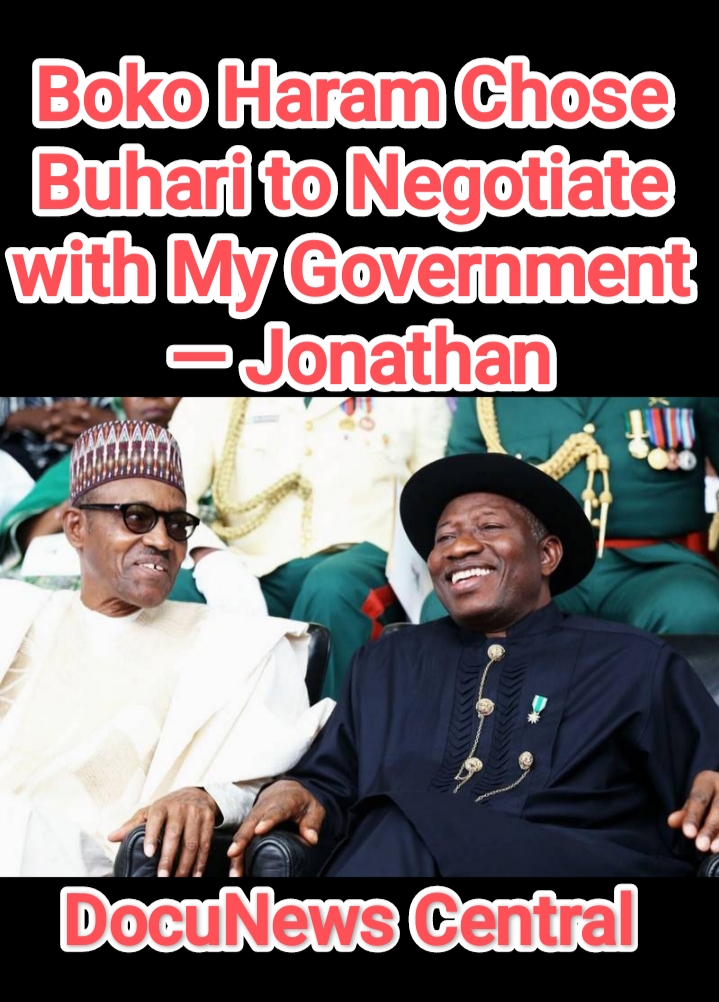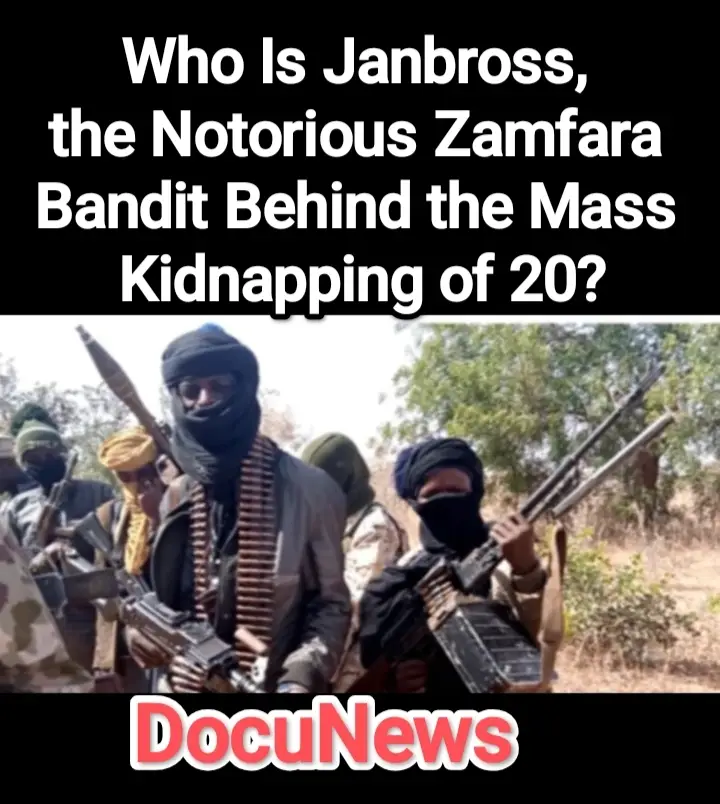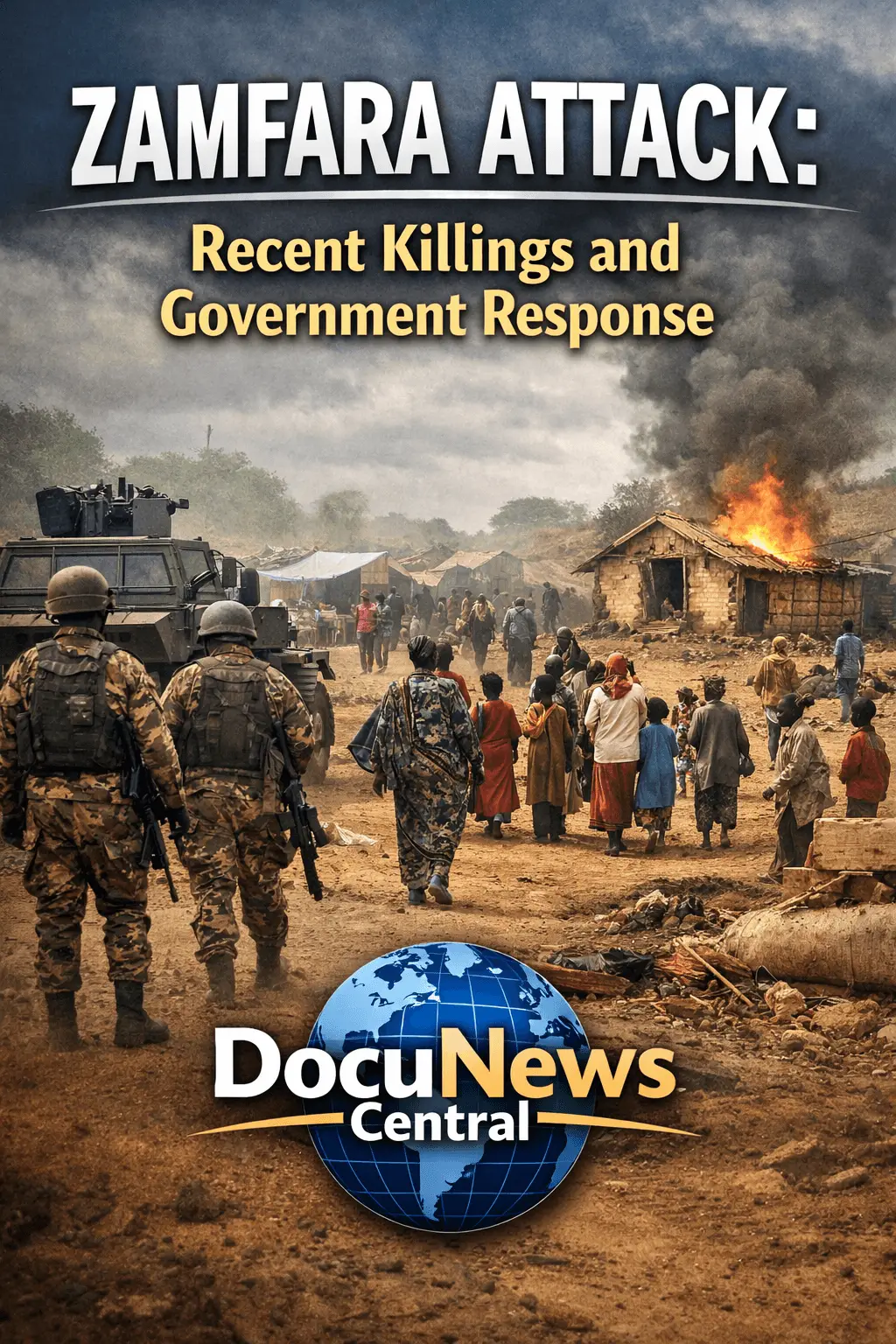
Boko Haram Chose Buhari to Negotiate with My Government — Jonathan
Jonathan’s Revelation Reopens Old Wounds
Former President Goodluck Ebele Jonathan has disclosed that the deadly insurgent group Boko Haram once nominated Muhammadu Buhari to represent them in peace negotiations with his government.
Jonathan made the revelation during a public event, stressing how insurgents had complicated peace talks by bringing unexpected names to the table. According to Punch Newspaper and Premium Times, Jonathan said the move created political tension and suspicion during his tenure.
A Troubled History with Boko Haram
Boko Haram, founded in 2002, transformed into a violent group after 2009. Under Abubakar Shekau, it carried out bombings, abductions, and mass killings. By 2014, its violence had spread across the northeast, displacing millions.
Jonathan’s administration faced growing pressure to dialogue with the insurgents. In those discussions, Boko Haram allegedly named Buhari, then an opposition leader, as their choice mediator. Vanguard Newspaper reported that Jonathan confirmed this nomination as one of the major shocks of his presidency.
Buhari’s Denial and Rejection
When reports first emerged in 2012, Buhari swiftly rejected the idea. He insisted he had nothing to do with Boko Haram and considered the nomination a deliberate attempt to smear his reputation.
According to Channels Television, Buhari’s spokespersons clarified that he never accepted such a role, describing it as a “diversionary tactic” by those who wanted to weaken his political standing.
Why Would Boko Haram Nominate Buhari?
Analysts and reports from Premium Times and The Cable suggest several possibilities:
- Credibility in the North: Buhari was widely respected in northern Nigeria, which Boko Haram might have seen as an advantage.
- Political Mischief: Insurgents may have nominated him to inflame suspicion between Jonathan’s government and the opposition.
- Distrust of Government: Boko Haram likely believed Buhari carried more weight than Jonathan in the region.
Political Fallout from the Revelation
Jonathan’s statement has once again fueled debate across Nigeria:
- Jonathan’s allies argue that the nomination was proof his presidency faced sabotage.
- Buhari’s supporters dismiss it as a political distraction.
- Civil society groups, including analysts quoted by Premium Times, urge leaders to stop politicizing national security.
Security Implications of the Boko Haram Nomination
Jonathan’s account shows how terrorism was used to destabilize Nigeria:
- Testing Authority – The nomination undermined Jonathan’s credibility.
- Dividing the Nation – It drove mistrust between government and opposition.
- Propaganda War – By attaching Buhari’s name, Boko Haram ensured widespread media coverage.
According to Punch, this nomination “complicated the already fragile security negotiations.”
Lessons from Failed Dialogue
Jonathan’s failed attempts at dialogue provide enduring lessons:
- Boko Haram’s fragmented leadership made talks unreliable.
- Distrust plagued both sides of negotiations.
- Political opponents turned peace talks into propaganda battles.
- International partners had little faith in Nigeria’s negotiation framework.
Channels TV highlighted that even global partners like the US and UK pressured Nigeria to be more decisive, especially after the 2014 Chibok girls’ abduction.
Buhari’s Presidency and Boko Haram’s Evolution
When Buhari became president in 2015, he pledged to defeat Boko Haram.
- His government reclaimed territories.
- However, attacks persisted and ISWAP emerged as a stronger faction.
- The insurgency evolved into a prolonged conflict that continues to affect millions.
Jonathan’s claim now raises a critical question: Could genuine dialogue in the past have prevented today’s prolonged insurgency?
Public Reactions to Jonathan’s Claim
Reactions have been divided:
- Pro-Jonathan groups: Say this confirms he was undermined.
- Pro-Buhari voices: Call it revisionist history.
- Neutral Nigerians: Believe both leaders failed to unite against terrorism.
Vanguard reported that several analysts see the issue as a reminder that politics often overshadowed Nigeria’s security fight.
Looking Ahead: Nigeria’s Path to Security
Jonathan’s disclosure carries important lessons for Nigeria’s future:
- Security must not be politicized.
- Peacebuilding should involve communities.
- Transparency is vital in any negotiation process.
- Military strength must combine with dialogue to end insurgency.
Conclusion
The claim that Boko Haram chose Buhari to negotiate with Jonathan’s government is one of the most controversial chapters in Nigeria’s security history.
- Jonathan insists it happened.
- Buhari’s camp denies it completely.
- Multiple outlets — Punch, Vanguard, Premium Times, Channels TV, and The Cable — confirm that Jonathan indeed made the statement and that Buhari rejected the role.
Whether seen as fact or political drama, the story shows how terrorism, politics, and leadership collided in Nigeria’s fight against insurgency. The lasting lesson is clear: without unity, Nigeria’s battle against extremism will remain unfinished.
All right @Docunews Central news desk.











Your point of view caught my eye and was very interesting. Thanks. I have a question for you. https://accounts.binance.info/en-IN/register-person?ref=A80YTPZ1